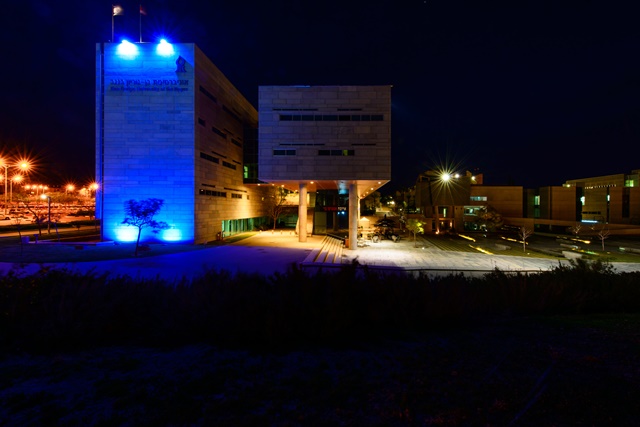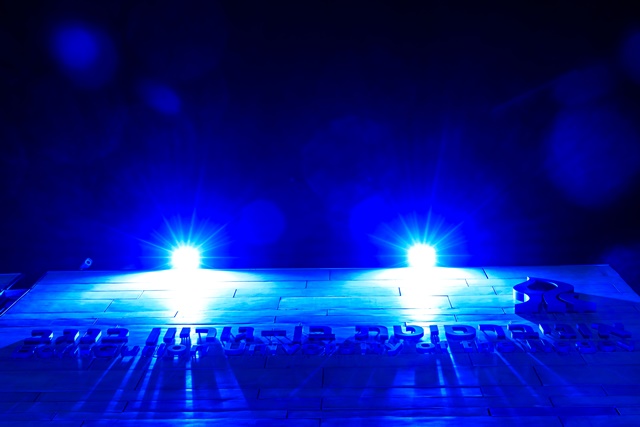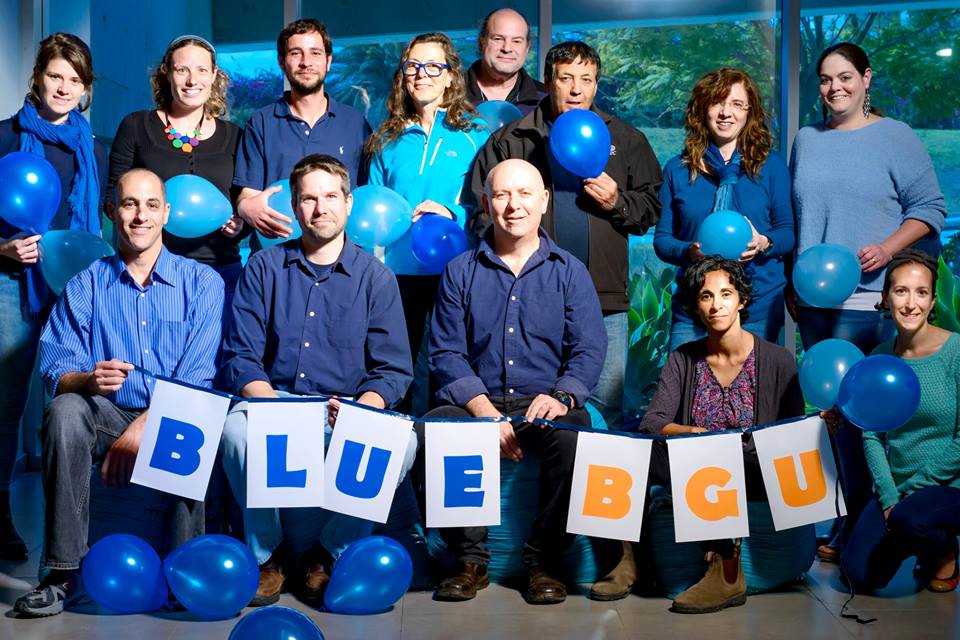Last Saturday (02/04/2016) World Autism Awareness Day was marked at BGU by lighting the Diller Family Center in an intense blue color. An important group of researchers in the field of autism and its various aspects, led by Dr. Ilan Dinstein, work at BGU.
Dr. Ilan Dinstein joined BGU’s Department of Psychology over three years ago and founded the Computational Neuroimaging Laboratory, the first of its kind in Israel. While other labs in Israel study autism from a behavioral perspective, Dr. Dinstein’s lab focuses on the brain. Most of his work focuses on understanding the brain development of children diagnosed with autism.


The project includes researchers from various disciplines including Epidemiology (Dr. Idan Menashe), Molecular Biology (Dr. Hava Golan), Computer Science (Dr. Ethan Bachmat), Genetics (Dr. Alal Eran), and Developmental Psychology (Dr. Florina Uzefovsky). These researchers work with senior doctors at Soroka University Medical Center in the Preschool Psychiatric Unit (Dr. Gal Meiri) and the Zusman Institute for Child Development (Dr. Hagit Flusser and Dr. Analia Michałowski) in attempt to understand the biological factors that cause autism. As part of the joint venture, the doctors and researchers have already begun to collect information on children diagnosed with autism and their families. The information includes behavioral testing, genetic testing, blood tests, eye movement tracking, MRI’s, and EEG’s, which measures electrical activity in the brain during sleep. The aim of the study is to find biological measures that will enable doctors to detect autism at an early age and to differentiate between different types of autism that require different treatments. In addition, the study will follow the children's development over the years to identify children who are developing better and what factors led to higher therapeutic success.
In the past year the researchers recruited over 150 families to the study and it is expected that the number of recruits will rise in the coming years as awareness of the condition increases among various population groups in the Negev. In the first stage, the information already collected has been used by researchers to identify risk factors for autism including the age of the parents, use of infertility treatments, low birth weight and so on.
The first results of the information gathered are to be published in the coming months and will allow better characterization of children diagnosed with autism across Israel and specifically in the Negev. Ongoing research in Dinstein’s Lab focuses on the existing research that showed that subjects with autism, including children aged 18 months to 4 years, have less stable and less synchronized brain activity than in subjects with normal development. The use of the developing database in the University and Soroka University Medical Center will make possible the identification of children who develop “noisier” brains and the specific implications of brain noise and synchronization for developing autism in the early years of life.

See the photo album on our FB page
